- Home
- Paul Christopher
The Second Assassin Page 7
The Second Assassin Read online
Page 7
‘They don’t have keys to the murder victim’s house,’ said Hennessy. He reached into the pocket of his trousers and pulled out a small set of keys. He dropped them into Jane’s hand. ‘It’s a basement on Washington Square North, 26B.’ He shrugged. ‘Who knows what you might find out.’ He reached his car and pulled open the driver’s side door. ‘Come on. I’ll drive you back into town.’
Chapter Five
Sunday, April 16, 1939
London, England
Following the instructions he had been given to be discreet, Detective Inspector Thomas Barry decided to approach his destination on foot, going out through the main gate of Scotland Yard and turning left up the Victoria Embankment. Across the bustling strip of road was Victoria Pier, while ahead of him were the Embankment Gardens and beyond that the sooty, utilitarian hulk of the Hungerford Railway Bridge.
It was overcast, not surprising for April in London, and there was a nip in the air but Barry was happy for any air at all after spending most of the day in the stuffy confines of the red and grey brick pile behind him, surrounded by a thousand men in cramped offices wearing wool suits or uniforms who sat smoking endless cigarettes and reeking pipes.
The policeman allowed himself a quick smile. If the glimmers and dips out there waited long enough, Jacks like him would wind up dying of asphyxiation. His throat was dry as dust, there was a distant but distinct little rattle in his chest and his eyes were burning. Notwithstanding all of that he reached into the pocket of his overcoat, pulled out an almost empty tin of Players and lit his twentieth cigarette of the day, letting the first inhalation clutch at his lungs for a rich moment before releasing the smoke into the chilly atmosphere.
It was dusk and most of the motor cars moving along the road had their headlamps on. Across the Thames he could see the twinkling lights of Southwark. As a cab rattled by with a window down Barry briefly heard the sound of a woman’s high-pitched laughter. Hardly the sights and sounds of a great city on the verge of going to war, but then again even the prime minister was still denying it would come to that.
That afternoon he’d lunched at Overton’s with two friends, Bob Fabian and Morris Black, both colleagues at C.I.D. Over the fish course he’d tried to bring up the possibility that Herr Hitler had designs on more than Czechoslovakia and the port of Memel in Lithuania, his most recent acquisition, but neither man had seemed very interested in the subject.
In Morris’s case it was at least understandable. The poor bugger had lost his wife, Fay, to cancer only a few months before and was still in mourning but he’d expected more from Bob. Detective Inspector Fabian, however, seemed far more concerned with the fact that his cousin, a footman at Cliveden, Lady Astor’s country house, was making more in gratuities from her famous and infamous guests than Bob was making in salary. Nobody, it seemed, was concerned with impending doom unless it was at their doorstep.
Keeping to his roundabout course Barry turned away from the Embankment at Horse Guards Avenue and made his way towards Whitehall. His summons to the meeting at hand had only come on his return from lunch and had been delivered in a sealed envelope by none other than P. C. Childers, secretary to Ronald Martin Howe, assistant commissioner of the Criminal Investigation Department, or C Division, of Scotland Yard and the man who, ultimately, was Barry’s boss.
The note, written in Howe’s own tight, neat hand, was, like Howe himself, brief and to the point. Using utmost discretion Detective Inspector Barry was to present himself at the Horse Guards entrance to the Treasury at precisely six p.m. that evening, where he would be met by Mr Charles Calthrop, a clerk of that office, who would escort him to his final destination.
Mr Calthrop would be wearing a dark suit, a red tie and spectacles and would be standing at the reception desk to the right of the doors. Detective Inspector Barry would identify himself to Mr Calthrop by showing his warrant card. All very cloak and dagger, which led Barry to believe that the summons probably had something to do with the Irish situation. God only knew what that had to do with the Treasury, unless the boyos had planted one of their ill-made bombs there, which in the light of recent events seemed unlikely. The Republicans had taken credit for almost a dozen incidents in Birmingham and London the past week, all the explosions taking place in public toilets.
The IRA had been active in London and elsewhere in England since January and even though there’d been a number of arrests there was no sign that the activity was slacking off. Normally the Sinn Feiners were handled by Special Branch but Barry, Morris Black, Fabian and a dozen detective inspectors had been pressed into service as well since the attacks had become so widespread. Barry had been particularly useful since he still had enough of the Shandon in his voice to ask questions where others couldn’t.
Thomas Patrick Barry had been born January 19,1899, in the gloomy grey confines of Mercy Hospital, Cork City, Ireland, at three minutes past midnight. The following day he had been moved to the foundlings ward and his mother, Mary Margaret Barry, was escorted by a priest and two nuns across the old wrought-iron footbridge spanning the River Lee to the Magdalene Laundry in Sunday’s Well. Mary Margaret had been eighteen at the time of his birth, a chambermaid at the old Victoria Hotel on St Patrick Street. She never disclosed the name of the man who had impregnated her, even after being severely beaten by her own father, a malter for the nearby Murphy’s Brewery.
Raised by monks at the Capuchin Orphanage in Cork, young Thomas Barry received a good enough education but ran away at fifteen and joined the British army by lying about his age. He fought in the infantry and managed to survive four years of war unscathed from the First Battle of the Marne to the Second Battle of the Somme and, finally, Amiens. He’d gone into the war as a private and demobbed out in London in January 1919 as a sergeant. With nothing to look forward to in Cork or anywhere else in Ireland except strife and poverty, the twenty-year-old successfully wrote the British Civil Service entrance examinations, applied at Peel House and was accepted as a candidate for the London Metropolitan Police Force.
After eight weeks at Eagle Hut, the training school in the Strand, named for the YMCA soldier’s centre that had previously occupied the building, Thomas Patrick Barry, late of Cork and the Great War, was made a probationary constable. Slightly less than two years after that he was promoted to detective sergeant. Then he followed the regular line of promotion for the next twelve years and eventually the assignment to the elite Flying Squad at about the same time as Morris Black and Bob Fabian. In 1929, on forced leave after rupturing a ligament in his hip during a chase, Barry went back to Ireland for the first time in almost fifteen years, taking the packet steamer from Fishguard to Rosslare and from there down to Cork City by train.
Enlisting the aid of the local Garda office he was told that the commercial laundries operated by the Magdalene Order all over the Republic were little more than prisons for young women deemed to have sinned and, since they had never been arrested or charged within the court system, the inmates had no recourse in law. The women had been given into the hands of the Church by their priest or parent and only the Church had the power to release them. Since the women worked fifteen hours a day for the most meagre room and board and were paid no wages releasing them was hardly cost-effective and rarely occurred.
Barry was advised that a direct confrontation with the mother superior or the local bishop would be inflammatory and unproductive but discreet inquiries were made on his behalf and he eventually learned that his mother had died of pleurisy and pneumonia after being held prisoner in the laundry above Sunday’s Well for almost seventeen years. Barry was directed to the graveyard where the women who died at the Magdalene Laundry were buried and found that the graves were all nameless, marked only by whitewashed wooden crosses. He left Ireland that same day and never returned. Nor had he set foot in a Catholic church again.
Barry passed under the looming shadow of the black-spired pile of Whitehall Court and continued on past the bulk of the War Office to Whitehall
itself, pausing to let a pair of No 18 buses growl by in opposite directions before he crossed the wide thoroughfare and turned west again. Finally, after having made a meandering three-quarters circle that he hoped was discreet enough to meet with Assistant Commissioner Howe’s approval, Barry went up a short flight of steps and entered the Treasury Building. According to his wristwatch and the booming chimes of Big Ben only a few blocks away it was spot-on six.
As promised, Calthrop, a tall, slim man with thinning hair, spectacles and a red tie was standing beside the reception desk. After Barry introduced himself and showed his warrant card, he was given a brief, tight smile in return. Calthrop then led the detective inspector down a maze of interconnecting stairs and narrow corridors, most of which seemed to lead in a roughly south-westerly direction. The tall windows were all shuttered and after two or three minutes Barry was thoroughly disoriented.
Eventually they reached a narrow, unmarked oak door guarded by a young uniformed police constable. The PC had the bored, slightly pained expression of a man enduring a punishment detail. Calthrop stood away. ‘Someone will see to you on the other side,’ he said. Calthrop nodded to the constable, who reached over and opened the door for Barry.
The detective went through, almost tripping as he stumbled down a short flight of steps, then stepped through an open doorway into a long, narrow room beyond. He suddenly realised where he was. He’d seen this exact spot in a photo in the Picture Post the week before. Just as it had been in the pictures, at the far end of the room in a niche above a small coal fireplace there was a pale marble bust of Wellington, and to the right of the fireplace was a row of pegs in the wall hung with hats and coats. It was madness. This was the antechamber to the Cabinet Room in 10 Downing Street, the official residence of the Prime Minister of England.
Immediately to Barry’s left there was a broad stairway and on his right were a number of darkly varnished oak doors. He looked over his shoulder, positive that Calthrop had somehow led him astray and he had already begun to turn back towards the steps he’d come down when the door on his right opened and a man a little younger than himself stepped out into the hallway.
The man was dressed formally in a black suit, white shirt and celluloid collar that made him look very much like a shorter, clean-shaven version of Prime Minister Chamberlain himself. He wore a signet ring with a carved armorial crest and a regimental tie. The handkerchief in his breast pocket showed three points and appeared to have been starched and ironed.
‘Alec Douglas-Home,’ he said, pronouncing the last as Hume in the Scottish fashion. ‘I expect you’re the policeman.’ The voice was pleasant, layered with Eton and Oxford and just imperious enough to raise Barry’s hackles. He added a little too much lilt to his response, watching for the man’s reaction.
‘Right enough, sir. Detective Inspector Thomas Patrick Barry, at your service.’
‘Ah,’ Douglas-Home responded, a little coolness creeping into his voice, ‘like the tea.’
Barry smiled. ‘No, sir. Like the architect who designed the Parliament Buildings. A great-uncle, I believe.’ It wasn’t true, of course, but that didn’t matter.
‘Um,’ said Douglas-Home. ‘I’m PPS to Mr Chamberlain. He couldn’t attend the meeting so he asked me to be his proxy.’
Barry had no intention of asking what a PPS was, assuming that it meant either Principal Private or Principal Parliamentary Secretary. Instead of saying anything he just nodded.
‘The others are waiting,’ Douglas-Home went on. He turned, walked down the corridor a little way then opened another door, standing aside to let the Scotland Yard man precede him. Barry found himself in a small vestibule with a surprisingly tatty little piece of blue and green Axminster on the floor. Through a tall window directly in front of him he could see across the garden and a low stone wall as dusk settled on Horse Guards Parade. On his right there was another plain, dark door, on his left a set of double doors, painted white.
Chamberlain’s man walked past him, knocked lightly on the left of the double doors, then opened it and stood aside again. Barry took a single deep breath and let it out, wishing there’d been time for another cigarette. He walked past Douglas-Home and entered the Cabinet Room, once again recognisable from the story in the Picture Post.
It was at least thirty or forty feet long, high ceilinged, the immense green-felt-covered table that ran the room’s length lit by three electric candelabra. The walls were cream coloured and bare except for a single small portrait hanging above the fireplace. There was a plain wooden case clock ticking away on the white marble mantelpiece below the painting. The carpet on the floor was the same pattern and colour as the Axminster in the vestibule. Two tall windows faced north, another two west, and all four were hidden behind heavy green curtains that matched the colour of the table covering. All in all it was surprisingly drab.
There were four men seated at the far end of the table. To Barry’s left he could see prim, thin-lipped Ronald Howe, deputy assistant commissioner for C.I.D., and beside him was Sir Norman Kendal, the gaunt, austere head of Special Branch and one notch in rank above Howe. Across from the two Scotland Yard men was a tall, balding figure wearing round, steel-rimmed spectacles and the uniform of a lieutenant colonel in the Royal Engineers. At the end of the table, seated in the only chair with arms, was the home secretary, Sir Samuel Hoare. In front of each place at the table was a green blotting pad, a leather folder, an inkstand and a cut glass ashtray. Both Hoare and the man in the army uniform were smoking cigarettes and Kendal was smoking a pipe.
Douglas-Home closed the door to the Cabinet Room, walked the length of the table and sat down to the right of the uniformed man. Barry remained standing at the far end of the table, waiting. Finally Howe spoke, his voice mildly irritated.
‘Sit down, Inspector.’
‘Yes, sir,’ said Barry. He pulled out the chair at the end of the table and seated himself. He could feel the tin of cigarettes against the top of his thigh but he wasn’t about to light one up here unless he was invited. He folded his hands over the leather-covered folder on the table in front of him and waited while Douglas-Home made the introductions, discovering that the man in uniform was an intelligence officer named Joseph Holland.
‘Do you have any idea at all why you’ve been asked to come here?’ Hoare asked from the opposite end of the table.
‘None whatsoever, sir.’
‘Theories?’
‘No, sir.’
‘We have a situation,’ said the home secretary. He took a long pull on his cigarette then let the smoke dribble slowly from his nostrils.
‘Yes, sir?’
‘Indeed,’ Hoare murmured. ‘A grave situation.’ He turned his head slightly and nodded towards Holland.
The balding man pulled his spectacles up onto his nose and flipped open the leather folder in front of him.
‘We have received information about a plot to assassinate Their Majesties on their upcoming tour of Canada and the United States. We have reason to believe that the Irish Republican Army is involved.’ Holland paused and looked across the table to Kendal and Howe. Barry saw Kendal’s head move fractionally as he nodded. Holland turned and looked down the table. ‘Presumably you know who Sean Russell is.’
‘The IRA chief of staff,’ Barry answered quietly. ‘And not well liked.’
‘Quite so,’ said Holland. ‘Odd sort of fellow. Early forties. Big, red-haired, drinks too loudly and talks too much. Two years ago he was thrown out of the movement for embezzling money for a motor car. Red sport coupé, actually. Last year he was elected chief of staff.’ Barry saw the bald man’s lips twitch in a fractional smile. ‘They really are a strange lot.’
‘What evidence is there that Russell is involved?’ Barry asked.
‘Lieutenant Colonel Holland is not at liberty to divulge that information,’ said Hoare. ‘Suffice it to say that such evidence does exist.’ The home secretary paused. ‘Regardless of that, Inspector Barry, what are your feelings
about such a plot and this Russell man’s involvement?’
‘I don’t think I know enough to express an opinion on the subject,’ Barry answered, carefully trying to be diplomatic. Express the wrong opinion and he could easily be back patrolling the East End as a constable. He still had no idea why he had been summoned to a meeting at this level – certainly not because his opinions were of any particular value to the home secretary or the mysterious Lieutenant Colonel Holland.
‘Don’t be coy, man!’ Howe snapped. ‘Hazard a guess.’
Barry tried to arrange his thoughts. He finally sat forward in the chair. ‘I don’t believe it. Not Russell’s involvement anyway.’
‘Why?’ Hoare asked.
‘Because it doesn’t make any sense, sir. Russell is fighting for full Irish independence, North and South together. If the IRA was involved in such an assassination Russell would get his unification by way of an English invasion and martial law being declared.’ Barry looked directly at the home secretary. ‘I don’t think Prime Minister Chamberlain would have any other choice.’ The policeman shook his head. ‘As I said, there’s no logic to it.’
‘But the plot exists,’ reiterated Holland. ‘There’s no doubt about it.’ He lifted his shoulders. ‘And no doubt that Sean Russell is somehow involved. He sailed for New York from Le Havre this afternoon on a German ship, the Stavangerfjord. It has been suggested he’s gone to raise funds and we have some information regarding his connection with a well-known American film star.’ He blinked. ‘Another Irishman, as a matter of fact. A Mr Flynn.’
‘From what you’ve been saying, there is presumably some reason to think that the assassination is to take place either in Canada or the United States.’
Holland nodded. ‘The United States.’
‘Curious,’ said Barry. ‘Much easier to kill them here I should think. His Majesty likes to shoot and the queen spends a great deal of time in the country.’

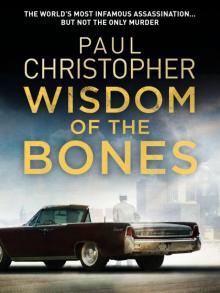 Wisdom of the Bones
Wisdom of the Bones The House of Special Purpose
The House of Special Purpose The Second Assassin
The Second Assassin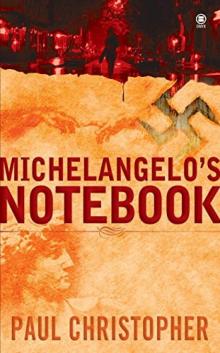 Michelangelo's Notebook
Michelangelo's Notebook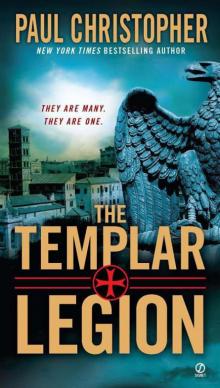 Templar Legion
Templar Legion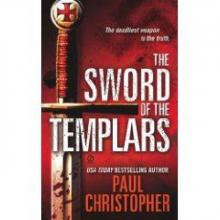 The Sword of the Templars t-1
The Sword of the Templars t-1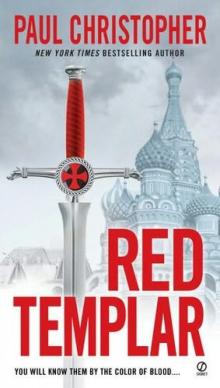 Red Templar
Red Templar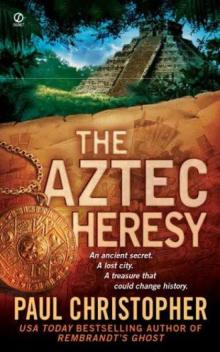 The Aztec Heresy
The Aztec Heresy The Templar Legion
The Templar Legion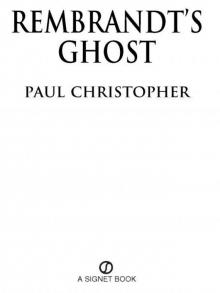 Rembrandt's Ghost
Rembrandt's Ghost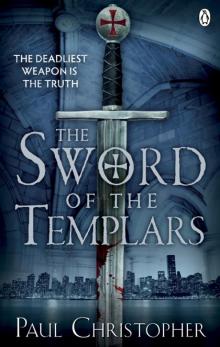 Sword of the Templars
Sword of the Templars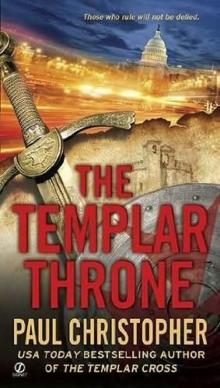 The Templar throne t-3
The Templar throne t-3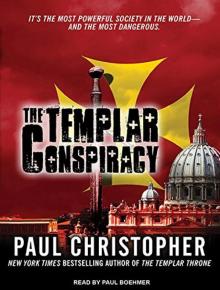 The Templar Conspiracy
The Templar Conspiracy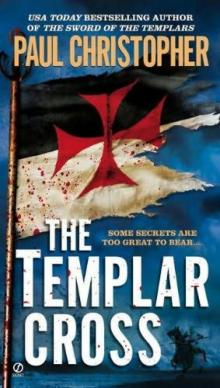 The Templar Cross t-2
The Templar Cross t-2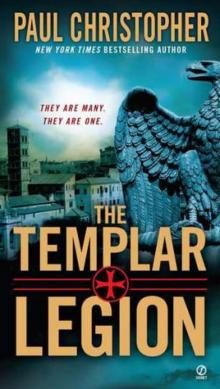 The Templar Legion t-5
The Templar Legion t-5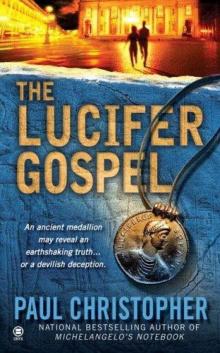 The Lucifer Gospel
The Lucifer Gospel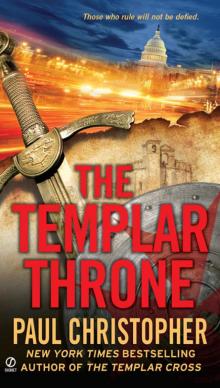 Templar Throne
Templar Throne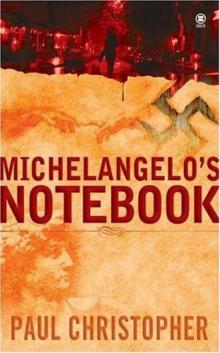 Michelangelo_s Notebook fr-1
Michelangelo_s Notebook fr-1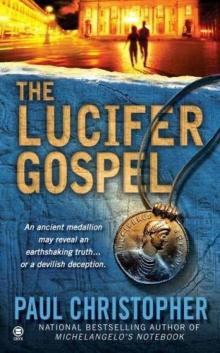 The Lucifer Gospel fr-2
The Lucifer Gospel fr-2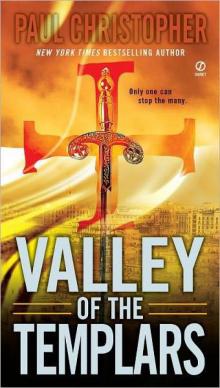 Valley of the Templars ts-7
Valley of the Templars ts-7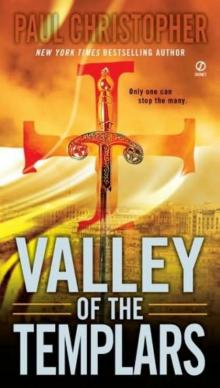 Valley of the Templars
Valley of the Templars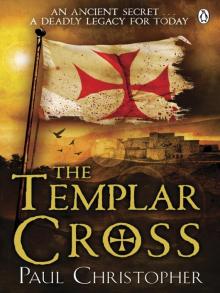 Templar Cross
Templar Cross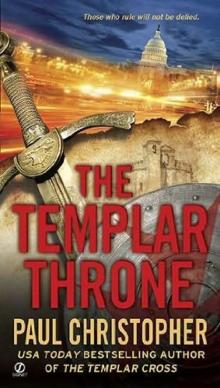 The Templar Throne
The Templar Throne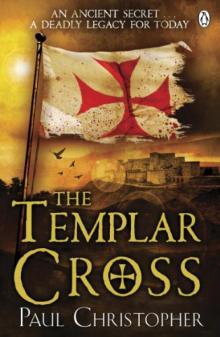 The Templar Cross
The Templar Cross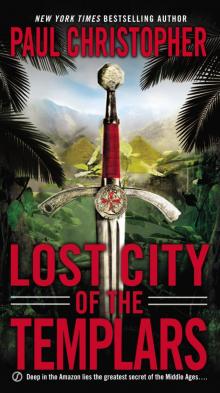 Lost City of the Templars
Lost City of the Templars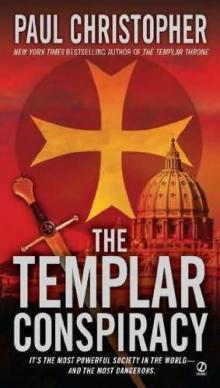 The Templar conspiracy t-4
The Templar conspiracy t-4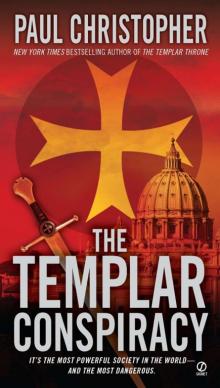 Templar Conspiracy
Templar Conspiracy